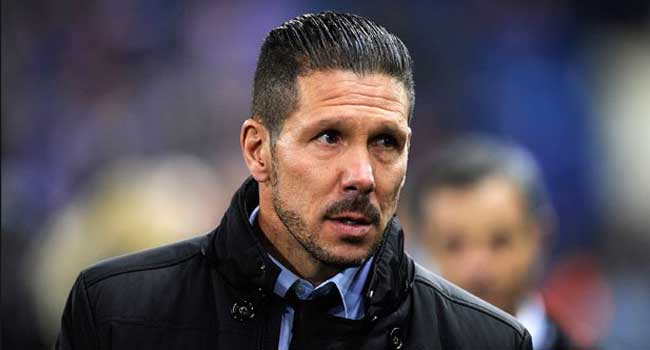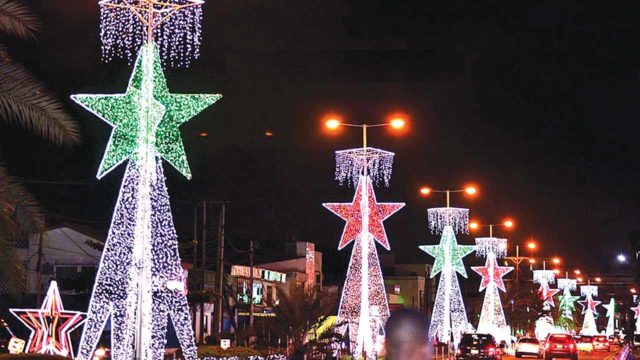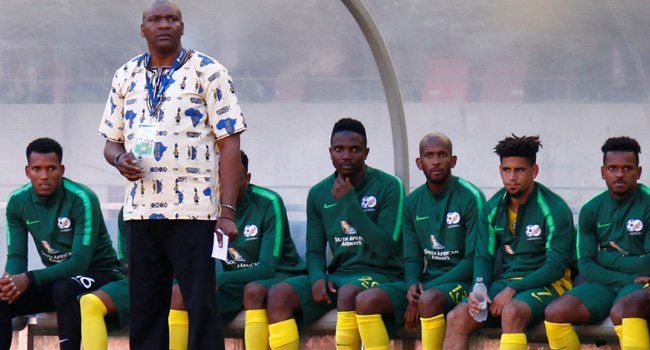“There are two responses,” Diego Simeone said after Atletico Madrid lost to Mallorca on Saturday in La Liga
Only a victory will do in Portugal otherwise Atletico will go out in the group stage for only the second time under Simeone, who has problems domestically as well. After 15 games, Atletico are fourth, 10 points behind Real Madrid.
Simeone has heard it before, the questions about his methods and relevance, and whether he is still a force for good at Atletico Madrid, who only six months ago were celebrating winning the Spanish title in a car park at Real Valladolid.
More broadly, Simeone is rightly revered for transforming an also-ran team in La Liga into an established member of Europe’s aristocracy.
Later this month, it will be exactly a decade since Simeone took over with Atletico 10th in the table and having not finished in the top three for 16 years, except for when they once finished first, in the second division.
In nine complete seasons under Simeone, they have never been out of La Liga’s top three.
They have broken the Barcelona-Real Madrid duopoly to win La Liga twice and come within a whisker of two Champions League triumphs, denied only by Sergio Ramos in the 93rd minute and Cristiano Ronaldo in a penalty shoot-out.
It remains highly likely the years immediately after Simeone eventually leaves Atletico will be worse than those that went before.
When Simeone called on Saturday for “rebellion” against Porto, it was a familiar reflex for a coach who in a crisis looks to the psychological elements, demanding more work, concentration, focus, fight and togetherness.
It is why the failures this season have been particularly jarring for an Atletico team so renowned for their discipline and defence.
Atletico suddenly look like a side with a soft-centre, vulnerable at set-pieces and fragile in key moments.
“Sometimes it’s difficult to find solutions for things that happen repeatedly,” Simeone said after Mallorca scored twice in the last 10 minutes to win 2-1.
“With two shots on goal they scored two goals and that can’t happen.”
– Decline –
One factor is personnel, a signing not adequately replacing a sale and when that happens repeatedly, the quality can be quickly reduced. Felipe and Mario Hermoso are among those to have struggled defensively this season.
There has been a shift in emphasis as well, a renewed focus on the attack, where Atletico now boast one of the most exiting rosters in Europe.
Antoine Griezmann’s return on loan last summer was an opportunity too good to turn down but finding a way to suit any combination of Griezmann, Luis Suarez, Joao Felix and Angel Correa is a problem still being resolved.
Despite the protestations of Jurgen Klopp and others, Atletico are no longer the Atletico of old.
Even if defence remains the priority, they are better to watch, attack more freely and score more goals but as a result, they are also leakier at the back and easier to beat.
Yet the bigger issue is whether the increasing regularity of Atletico’s dips suggest Simeone’s time at the apex of European coaching has now passed.
It is credit to him that he has outlasted other prominent defence-first coaches like Jose Mourinho and Rafael Benitez but the most coveted tacticians are now proponents of a different style, of front-foot football based on pressing and possession.
Atletico’s decline in the Champions League is clear. Since reaching the final in 2016, their yearly stage of exit reads semi-final, group stage, last 16, quarter-final, last 16.
In the last three years, they have been outplayed by Klopp’s Lverpool, Thomas Tuchel’s Chelsea and Borussia Dortmund under Lucien Favre.
Even domestically, this current slump is not a one-off. They were treading water for most of the second half of last season, winning only six games out of 16 between February and April.
They got over the line with four wins out of five in May, two of them with late goals.
It was another example of Atletico’s enduring grit in the face of adversity and Simeone’s mastery at generating solidarity and resilience.
Atletico will believe that same sense of “rebellion” can turn the tide against Porto, another revival still in their grasp. The deeper decline could be harder to reverse.


